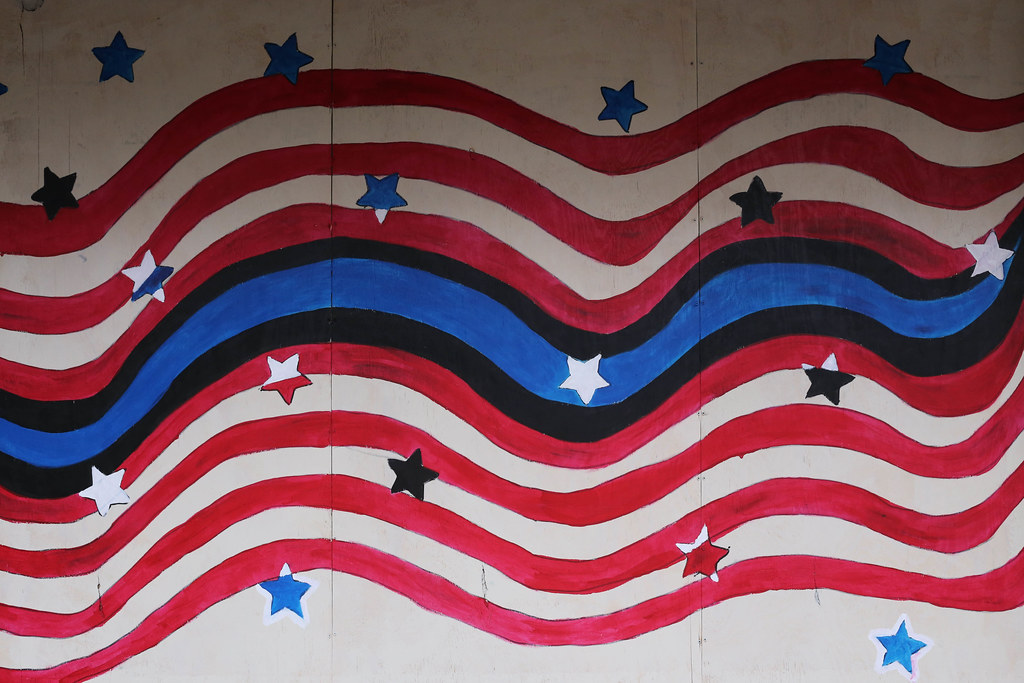The Glorified Blue Line
February 25, 2020
Take a drive down any given highway in the great city of Dallas, and chances are you will see at least one bumper sticker bearing the words “Thin Blue Line” or “Blue Lives Matter.” These stickers all communicate the same general sentiment: “I stand with law enforcement, who have suddenly become an oppressed class because people are starting to question their reckless and often dangerous practices.”
The main problems with the American police force are terrifying power and low accountability. Officers can take the lives of anyone they want, even if they haven’t broken the law, and as history has shown, they seldom face any consequences. The National Police Misconduct Reporting Project found that, for 3,238 criminal cases against cops, only 33 percent of them were convicted compared to 68 percent of defendants from the public.
This uncanny ability to dodge repercussions has been widely publicized with the deaths of Philando Castile, Eric Garner, Michael Brown, and others. More recently, an overeager Miami police force shot a hijacked UPS truck over 200 times, killing two civilians, including the truck’s driver, who had been taken hostage. They endangered even more bystanders by using their cars as cover in the shootout. UPS thanked the officers in a now-deleted tweet. This ironic and befuddling instance seems to capture our country’s strange relationship with law enforcement. As a culture, we almost beg them to keep subjugating us. Kids today can walk into school with metal detectors and mandatory backpack searches and think nothing of it. According to the ACLU, we are living in a police state, one directly in conflict with the vision of “a well-regulated militia.”
The job can attract aggressive and power-hungry people. This is apparently proven by the staggering level at which police households suffer from physical abuse. Two separate studies found that at least 40% of police officer families experience domestic violence. This means that domestic violence is up to 4 times more likely in police families than in the average American household. This figure could be inaccurate as it may fail to account for violence among non-married partners.
Another trend in the police force is a compulsive need to be the victim. High-ranking police officials often throw around the phrase ‘war on police’ or claim that they’re ‘under attack.’ One Kansas police officer rather strangely fabricated a story that a McDonald’s employee wrote ‘pig’ on his cup. Yet, statistics from the Bureau of Labor indicate that a police officer’s job is actually relatively safe. The death rate for police is 12.6 per 100,000. Garbage men are three times more likely to die on the job than police officers.
It is possible that a more aggressive police force can be attributed to the ‘warrior mentality’ that has been widely adopted in recent years. A large number of veterans become cops after returning home, and they may have brought their battle-hardened instincts with them. This mindset is reinforced by naming police missions things like ‘war on drugs,’ ‘war on crime,’ etc. The bumper sticker craze of the Punisher logo and Thin Blue Line solidifies the idea in officers’ minds that they are the final line of defense between order and anarchy, that they are protecting an ungrateful populace from oblivion.
It goes without saying that not all police officers are evil; they are human. However, the institution itself is deeply, deeply flawed, which begs the questions: is the level of cop deification found in our society warranted? What type of culture are we creating by glorifying people who literally get away with murder? Can they ever go too far? This writer believes that it’s a discussion that needs to be had.
The views expressed within this article are those of the author and not necessarily those of Cistercian or The Cistercian Informer.
